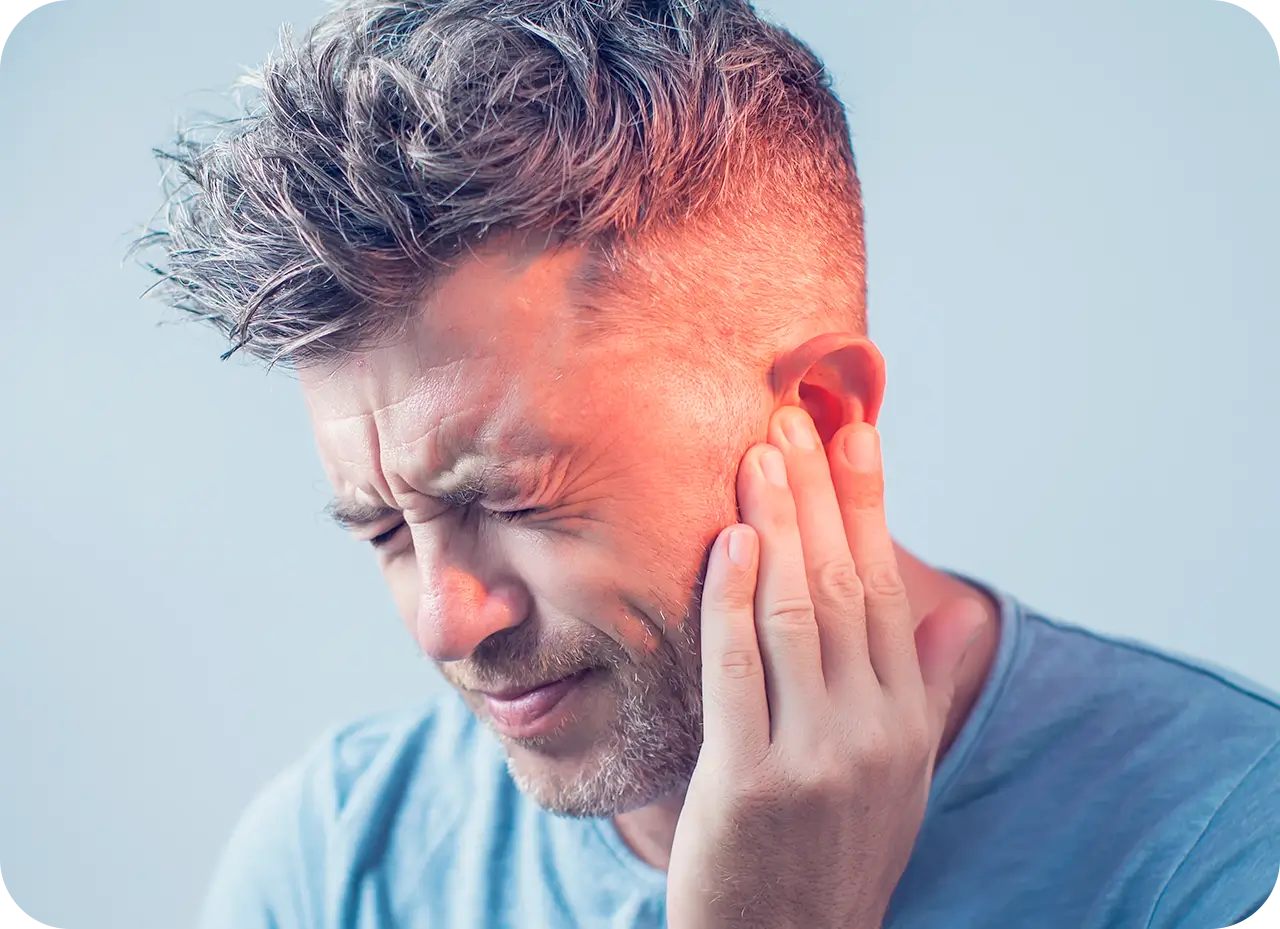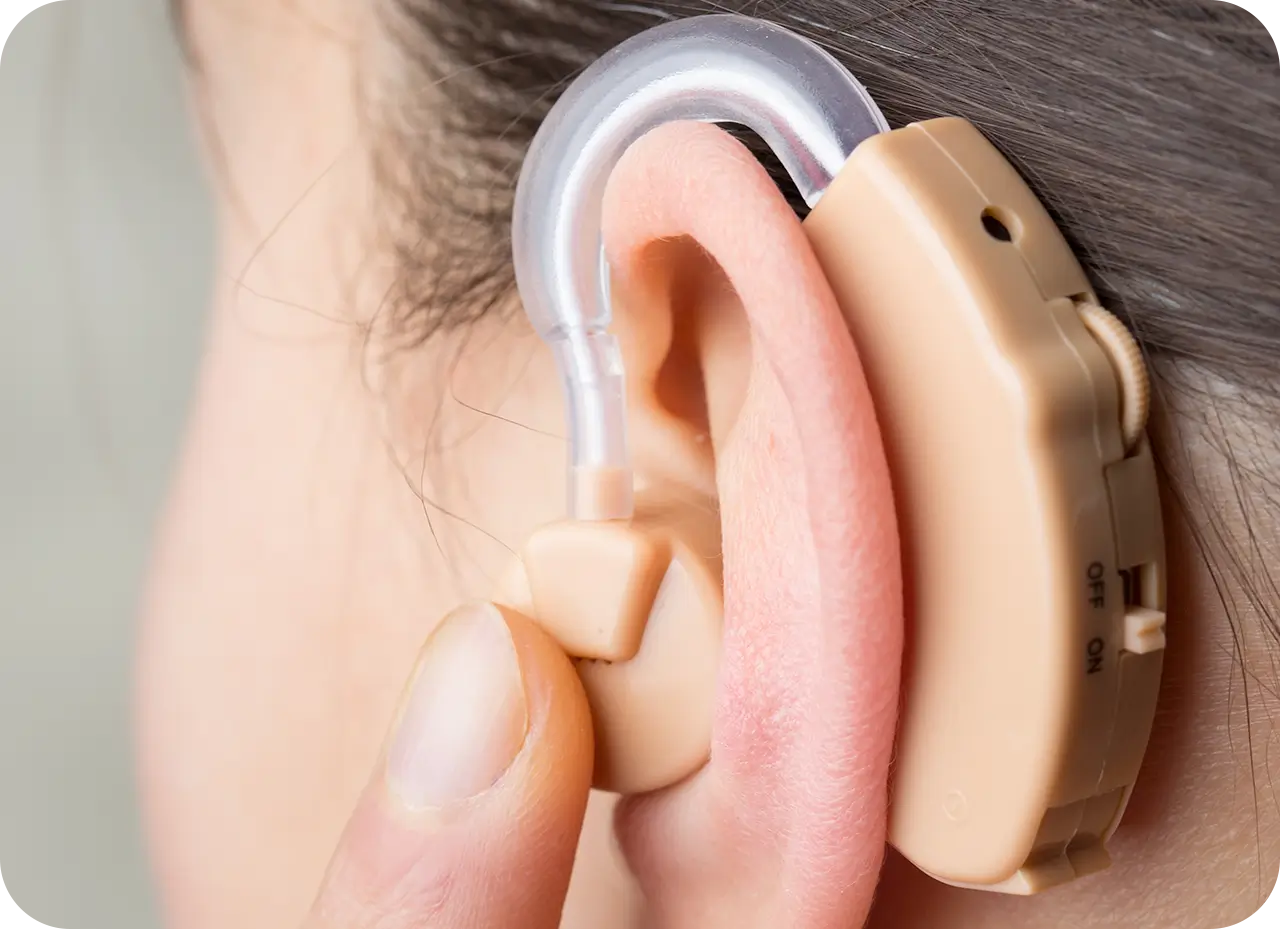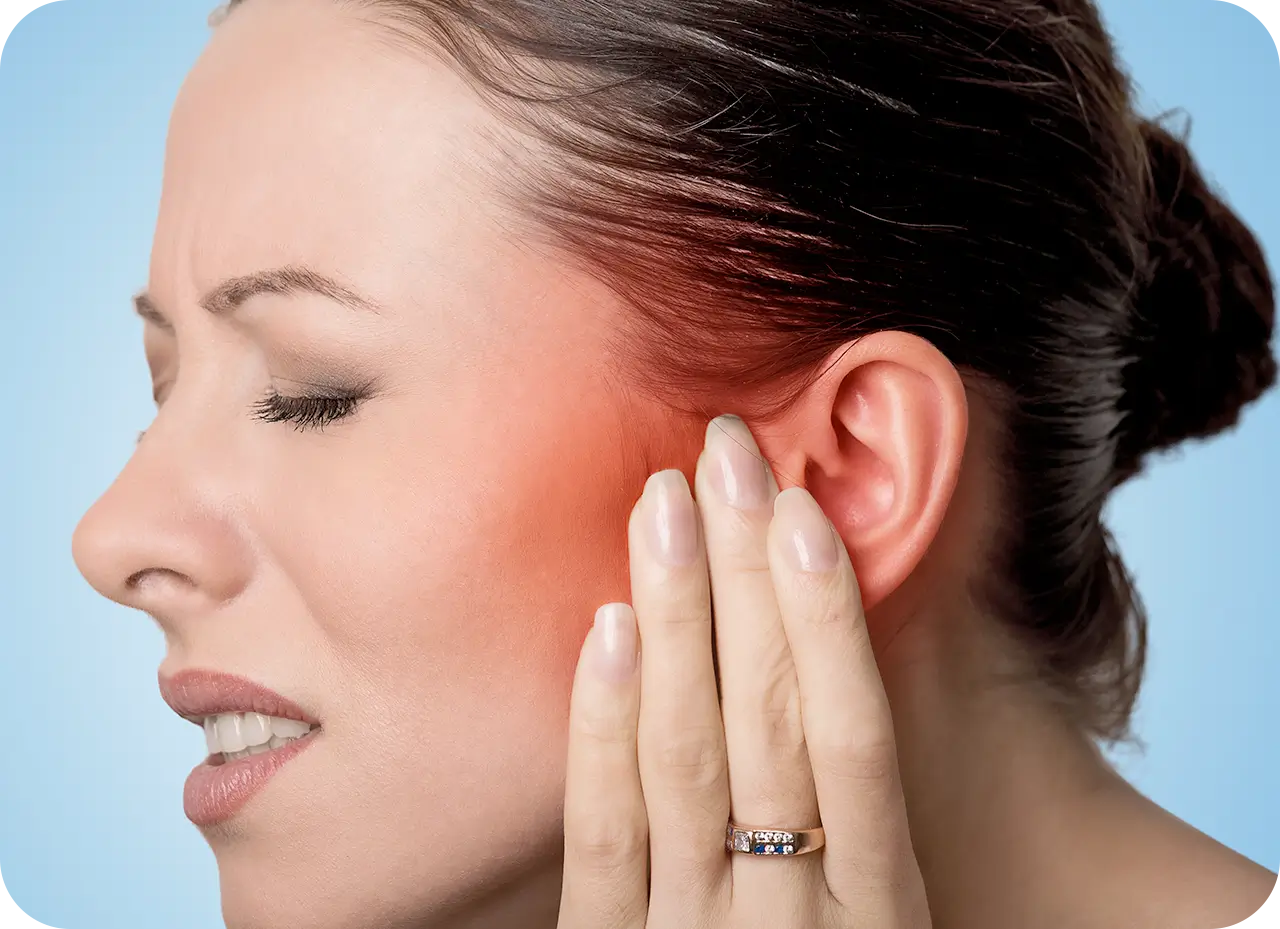So, you've got an ear infection and suddenly, out of nowhere, your tooth starts aching. It can be confusing, right? Ear infections are usually associated with pain in the ear or around the jaw, but did you know they can actually cause tooth pain too? Let’s dive into how that works.
How the Ear and Teeth Are Connected
It might seem odd at first, but your ear and teeth are more connected than you think! This connection is all due to the complex network of nerves that runs through your head and neck. Let's break it down:
Shared Nerve Pathways
Both your ear and your teeth are controlled by the trigeminal nerve, which is one of the main nerves in your face. The trigeminal nerve is responsible for sensations in several areas, including your teeth, jaw, face, and even parts of your ear. Because the trigeminal nerve is so widespread, pain or irritation in one area (like your ear) can easily “travel” to another area (like your teeth or jaw).
This is why sometimes, when you have an ear infection or inflammation, you may experience discomfort or pain that feels like it's coming from your teeth or jaw. It's not necessarily that your teeth are infected or injured, but that the pain signals from your ear are being "referred" to the jaw area through that shared nerve pathway.
The Proximity of Your Ear and Jaw
On top of that, the ear and the jaw are physically very close to each other. The temporal mandibular joint (TMJ), which connects your jaw to the skull, is right next to the ear canal. So, when you have an infection or fluid buildup in the ear, it can also affect the muscles and joints near the jaw, causing discomfort or a feeling of tightness in your teeth or jaw. This is why some people experience a dull ache in their teeth when they have an ear infection—it’s like the pain is radiating outward from the ear area to the jaw.
The Eustachian Tube and Jaw Pressure
Another interesting link between your ear and jaw is the Eustachian tube. This is a small passage that connects the middle ear to the back of the throat and helps balance pressure in the ear. When the Eustachian tube becomes blocked—like during an ear infection—it can create pressure that affects the jaw. The pressure in the ear can be felt in the jaw, leading to pain that may feel like it's in the teeth.
Additionally, when you're dealing with ear infections, you may notice that you clench your teeth or jaw as a reflex to the pain or discomfort in your ear. This can add more tension to the jaw area, which then might cause tooth pain or sensitivity.
Can an Ear Infection Cause Tooth Pain?
So, can an ear infection cause tooth pain? Absolutely. While it may seem like a tooth problem, the pain you're feeling could actually be a result of the ear infection. Thanks to shared nerves and the close proximity of the ear and jaw, the pain from an ear infection can easily radiate to the teeth. If you're experiencing ear pain along with discomfort in your teeth, it’s likely that the two are connected. If you're unsure or the pain persists, it’s always a good idea to see a healthcare professional to get to the root cause of the issue.

When to Worry About Tooth Pain and Ear Infection
We’ve all been there—waking up with an aching ear and, out of nowhere, a tooth that feels like it’s being drilled on. It's easy to brush it off at first, thinking it’ll go away. But there are times when tooth pain paired with an ear infection is a sign you should take a closer look.
So, when should you actually start to worry? Let’s break it down:
-
Severe or Persistent Pain: If the pain is so intense that over-the-counter meds aren't doing the trick, or it sticks around for more than a few days, it might be time to seek help. Severe or persistent pain could indicate that the infection is spreading or getting worse.
-
Fever and Swelling: A fever or swelling around your ear or jaw is a red flag. If your face starts to swell or you have trouble swallowing, it’s a sign the infection might be more serious. You should see a doctor as soon as possible in this case.
-
Hearing Loss or Fluid Drainage: Fluid leaking from the ear or trouble hearing are common signs that an ear infection is affecting the middle ear. If you notice these symptoms along with tooth pain, it’s best to get checked out to prevent further complications.
-
Tooth Pain Without Ear Symptoms: If you’re feeling tooth pain but don’t have any ear discomfort, the cause is more likely dental rather than an ear infection. This could be anything from a cavity to gum issues, so it’s a good idea to visit a dentist to rule those out.
-
Inability to Relieve Pain: When nothing seems to relieve the pain, even after trying basic remedies, it’s time to see a professional. A persistent ache might mean the infection isn’t clearing up on its own and needs a doctor's attention.
How to Prevent Ear Infections
No one likes dealing with ear infections, and the good news is, there are several ways you can prevent them from happening in the first place. Here are some simple steps to keep your ears healthy and reduce the risk of infection:
Keep Your Ears Clean (But Not Too Clean)
Earwax is a natural protector for your ears, but too much buildup can lead to discomfort or even infections. To avoid this, use ear wax cleaning tools safely, like ear cameras or gentle irrigation systems. These can help you monitor and clean your ears without pushing the wax deeper into the ear canal.
Avoid Getting Water in Your Ears
Water trapped in your ears after swimming or showering can create a breeding ground for bacteria. Be sure to dry your ears carefully with a soft towel, or tilt your head to let any excess water drain out.
Protect Your Ears from Loud Noises
Prolonged exposure to loud sounds can harm your ear canal and make you more susceptible to infections. If you’re in a noisy environment, make sure to wear ear protection like earplugs or noise-canceling headphones.
Don’t Insert Objects into Your Ear Canal
Avoid using cotton swabs or other sharp objects to clean your ears. These can push earwax deeper into the ear canal or even cause injury. Instead, use safe ear cleaning tools or visit a doctor if you have concerns about earwax buildup.
Manage Allergies and Sinus Issues
Allergies can cause inflammation in the ear, increasing the risk of infections. Keeping your allergies under control with proper medication and using a decongestant when needed can help prevent ear infections.
Conclusion
So, yes, an ear infection can definitely cause tooth pain, thanks to the way our nerves are all connected in the head. If you're dealing with both ear and tooth pain at the same time, it’s probably worth getting checked out by a professional. They can help figure out what’s causing it and get you on the road to recovery. Take care of your ears, your teeth, and always listen to your body when it’s trying to tell you something’s off!
Bonus Tip: To help keep your ears healthy and prevent infections, check out Bebird's ear cleaning tools—a safe and easy way to maintain ear hygiene at home.
Related: Can You Massage Ear Wax Out?
















Leave a comment
All comments are moderated before being published.
This site is protected by hCaptcha and the hCaptcha Privacy Policy and Terms of Service apply.